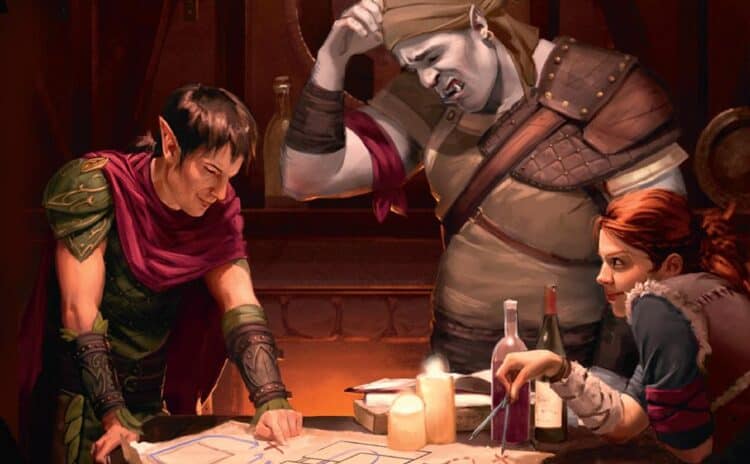
As a seasoned Dungeons and Dragons player, I can attest to the fact that it’s an incredibly fun and immersive roleplaying game. However, it can be challenging for newcomers due to the extensive reading, writing, and strategizing involved. The most pressure falls on the Dungeon Master (DM), who is responsible for running the game, managing player issues, and keeping the story engaging. To help DMs excel in their role, I’ve compiled a list of five things they should avoid doing during gameplay.
1. Avoid entering the game with an incomplete plan.
While it’s possible to run a game with only half a plan, it’s not advisable. An incomplete plan can quickly crumble depending on how players react to the surprises you’ve prepared. A good DM should have multiple angles covered and be able to think on their feet. Striking a balance between preparation and flexibility is crucial to keep the game engaging and prevent boredom. Remember, some battles and situations can last over an hour, while others can end quickly due to a lucky dice roll. Being prepared is always a smart move.
2. Don’t let players take control of the game.
It’s essential to maintain control as a DM and not let players dictate the game’s direction. Allowing characters to make decisions within the context of your plan is fine, but if a player takes over, you’ve failed as a DM and storyteller. Strong-willed players may try to seize control, but by telling a compelling story and maintaining a steady pace, you can keep even the most dominant players satisfied. Occasionally, you may need to gently remind players to stay on track and not stray too far from the party’s objectives.
3. Refrain from targeting individual players.
A good DM should never single out a player without a valid reason. Two acceptable reasons for targeting a player are: 1) The character is attempting to step outside the boundaries of your quest, and 2) The player is trying to cheat. In these cases, it’s best to communicate with the player and try to get them back on track. However, if a player persists in ignoring the DM, it’s up to the DM to decide how to respond. Many DMs won’t tolerate cheating and will let their dice do the talking, subtly influencing the game to teach the cheating player a lesson. Targeting a player is generally unwise, but cheaters often disrupt the game for others and may need to be dealt with accordingly.
4. Don’t kill off your party during their first adventure.
The difficulty of encounters and challenges should be tailored to the party’s strength. For level 1 characters, this requires finesse when designing encounters, skill checks, and various situations. As the party’s level increases, the DM can throw more challenging obstacles at them with the expectation that they’ll survive. A good DM will balance fights and encounters based on the party’s strength, as throwing an unbeatable challenge at the party isn’t fun for anyone, especially if it results in a quick defeat.
5. Never take anything personally.
Playing Dungeons and Dragons requires thick skin, as players often become attached to their characters. However, it’s crucial not to take anything personally, as it’s just a game, and the dice will roll as they will. A good DM must remember that players aren’t actively trying to destroy the scenarios they’ve set up and that they serve as the impartial force behind the game. In other words, don’t get upset when a character is damaged, dies, or is otherwise affected by a dice roll. Dungeons and Dragons is meant to be enjoyed by everyone, including the DM, but it’s essential to take your responsibilities seriously to ensure a fun and engaging experience for all.
 Follow Us
Follow Us





